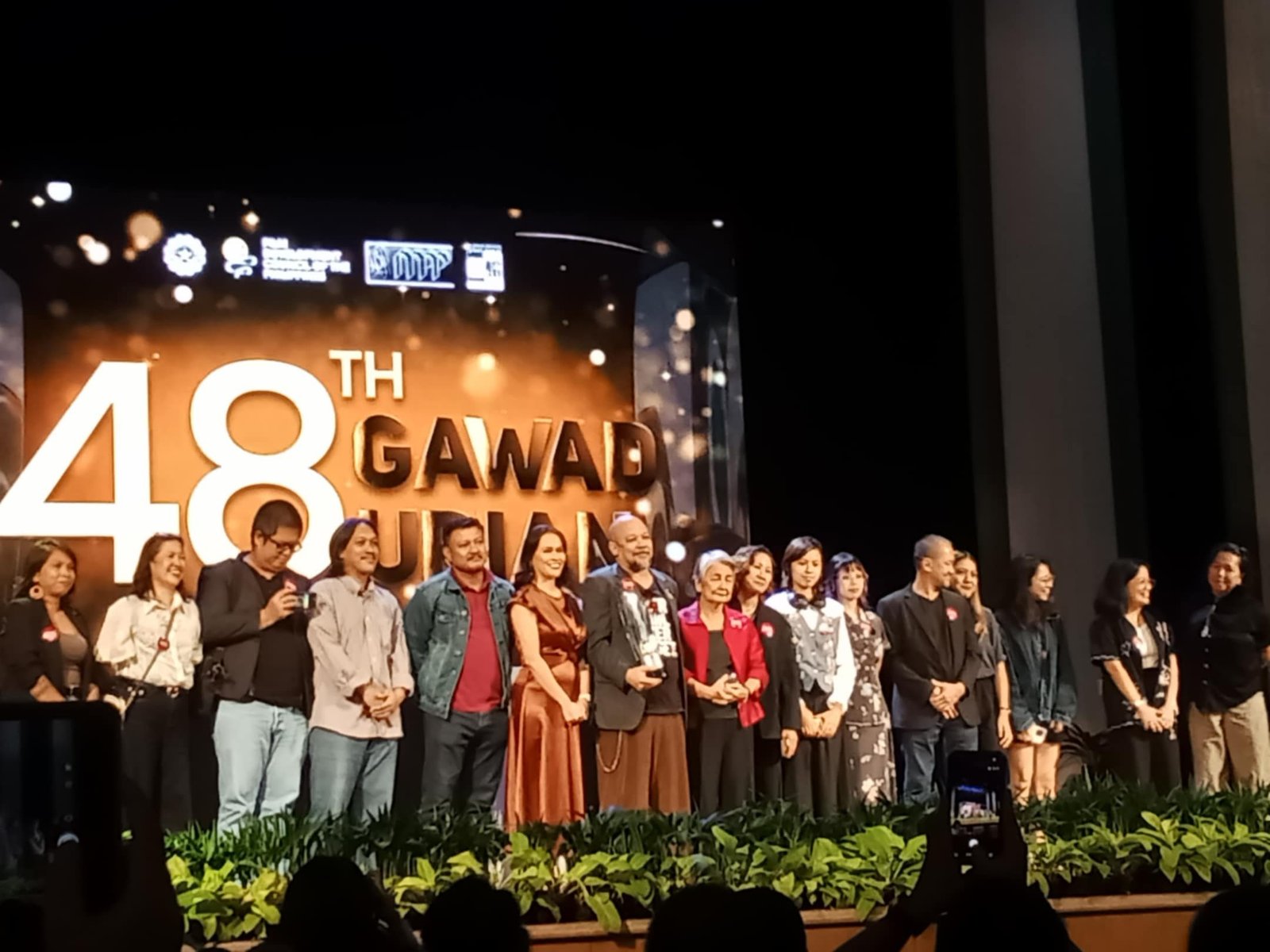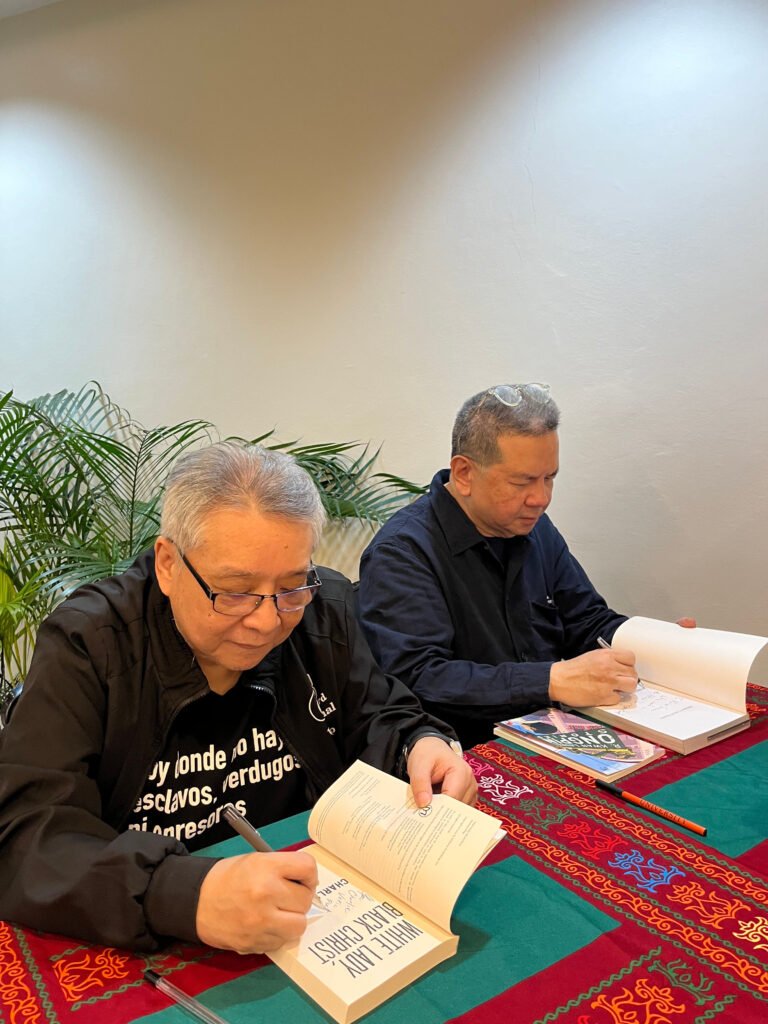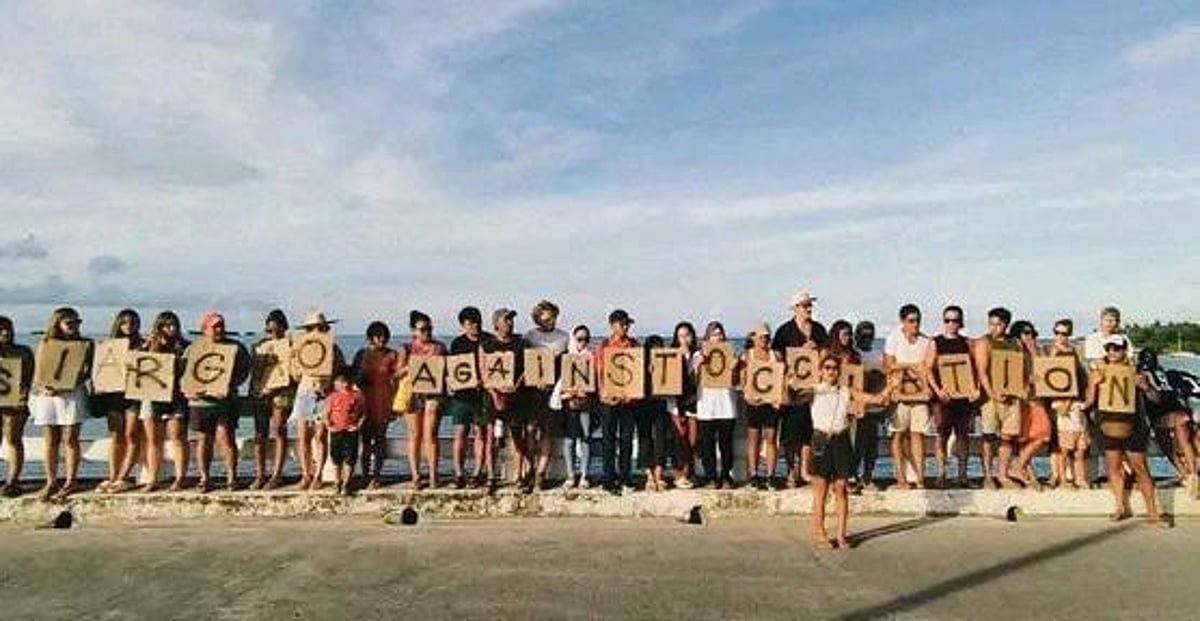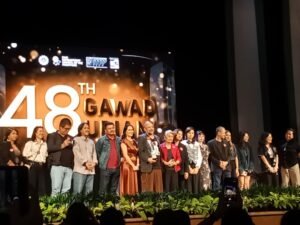“The nation is one of the biggest fictions.”
-Robby Kwan Laurel
As part of the 2025 Ateneo Literary and Cultural Festival (ALCF 2025), authors Charlson Ong and Robby Kwan Laurel described the life experiences that shaped their writing in a guest lecture titled “Literary Ongpin”, held last 16 September, 3:00 to 5:00 pm at the Natividad Galang Fajardo Conference Room, Ateneo de Manila University, Loyola Heights campus. Dr Patricia Lambino, dean of the School of Humanities, formally opened the guest lecture.
Both Ong and Kwan Laurel, authors of short story collections that paint a picture of the Filipino-Chinese culture in Philippine life, talked about the ethnic diasporic experience behind Sojourner, Settler, Seer, and Ongpin Stories, respectively. They read aloud excerpts from their works before discussing their inspirations, references, and intentions with such attention to detail.
Ong highlights how the journey of the Chinese migrant to the Philippines starts with a sojourn into the country, then settlement among and amid communities, and eventually a renewed seeing of the world because of the culture clash. With this journey, the politics of representation come into play: Who will represent the new Filipino-Chinese generations in the country, and how will it be done? He recalls cult classic film Maynila sa mga Kuko ng Liwanag (1975) for example. In the film, the hardship of protagonist Julio Madiaga is exacerbated by business owner Ah Tek, who is the only prominent Filipino-Chinese character in the film. In its unforgettable climax, Julio achieves retribution by killing Ah Tek with his own hands.
Ong remarks how, in real life, the popularity of the film gave rise to the masses’ hatred of the Filipino-Chinese. Thus, Filipino-Chinese artists and writers sought to push their own side of the story—their own representation in their own voices.
Kwan Laurel argues that the tension born of the conflicting politics of representation of the Filipino-Chinese testifies to the violence of nationalism that Benedict Anderson claims is imagined, therefore fictive and malleable.
“The nation is one of the biggest fictions,” he posits as he explains how Ongpin Stories confronts the marginalizing power of a national imagination. When narratives on national identity are made, delineations between “us” and “other” are created—deepening discrimination against the Filipino-Chinese, some of whom are facing material struggle.
In his critical work Philippine Cultural Disasters, Kwan Laurel critiques Caroline Hau’s alignment with Anderson’s idea of imagined communities; Kwan Laurel’s grandfather was poor and thus marginalized from the collective imagination. “I had a class-based identity. Nationalism was very pervasive to us,” he recalls. Kwan Laurel argues that imagery and the imagination make the nation a fragile construction; hence, the need for Filipino-Chinese authors to keep writing about the truth in their stories.
Amid an ever-changing construction of national identity lies the power of fiction and storytelling, reactor Dr Mark Benedict Lim of the Kagawaran ng Filipino adds, “May power ang fiction, ang stories. Hindi ko makikilala ang sarili ko bilang Filipino-Chinese kung wala ang mga kuwentong iyon. A lot of our identity is grounded in notions of fiction.”
This begs the question: If identity is grounded in fiction, doesn’t the latter make the former fake—merely an added layer to the construction of a nation? Dr Lim explains that fictional stories instead give the Filipino-Chinese more agency in negotiating their own identities—an agency that was denied in films and even critical theory that do not comprehend the full picture of the Filipino-Chinese diaspora.
After the talks by Ong and Kwan Laurel and the response from Dr Lim, the floor was opened for questions from the audience. Eager students asked more about the lives of the two authors, bringing back the discussion to the fundamental truths of the lived experience of the Filipino-Chinese culture.
To end the guest lecture, Dr Charlie Samuya Veric and Francis Sollano of the Ateneo Literary and Cultural Studies Program (LCSP) awarded Ong and Kwan Laurel with certificates of appreciation. The session ended with a book signing where attendees and students alike had the chance to have their books inscribed by these authors.
Hosted by the LCSP in cooperation with the Ateneo Archive of Philippine Literature in English, Kritika Kultura, PLUME, Rizal Library, and the Cultural Center of the Philippines, the ALCF ran from 15 to 19 September 2025, featuring talks and workshops on art and society, young adult fantasy fiction and komiks writing, and counternarratives and literary publishing.
Held annually since 2024, the ALCF is a symposium, a laboratory, a workshop, and a marketplace for Filipino creatives in the 21st century. The festival promotes Philippine literature in English and its allied traditions, serves as a testing ground for innovation and creativity, hones leadership skills in the imaginative arts, and offers a safe space for debates that help us appreciate our cultural past, assess our artistic present, and invigorate our creative future.












